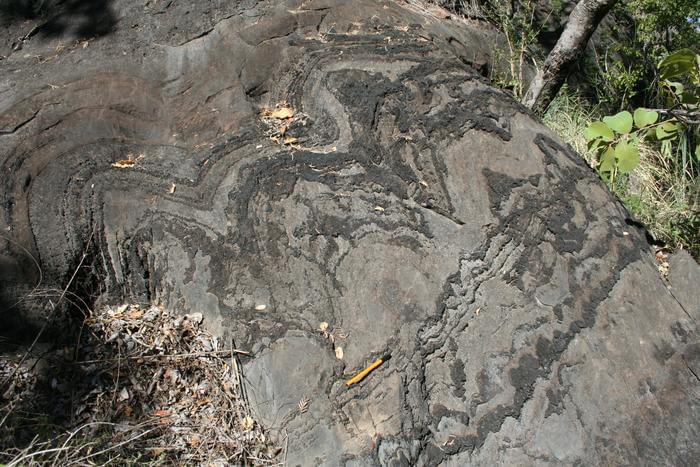Dr. Ashley Martin: “Our study reveals high nitrogen isotope values in 2.75-billion-year-old shallow water stromatolites, and lower nitrogen values in deeper marine sediments.”
What can volcanism on the early Earth teach us about the formation of life on our planet? This is what a recent study published in Nature Communications hopes to address as an international team of researchers investigated how volcanic activity billions of years ago could have influenced the Earth’s nitrogen cycle, thus influencing the development of marine life. This study has the potential to help researchers better understand the processes responsible for the development of life on early Earth, specifically in Earth’s oceans.
For the study, the researchers analyzed 2.5-billion-year-old samples of stromatolites, which are fossilized rock formations created by microorganisms, in southern Zimbabwe. The goal of the study was to ascertain a connection between nitrogen isotope patterns and an event known as the Great Oxidation Event that occurred approximately 2.5 billion years ago and is often hailed as a major turning point in the development of life on the Earth. During that time, most of the Earth’s land mass was underwater with volcanic activity occurring in the oceans. Therefore, the researchers found an interesting connection between volcanic activity and nitrogen levels that occurred simultaneously.
